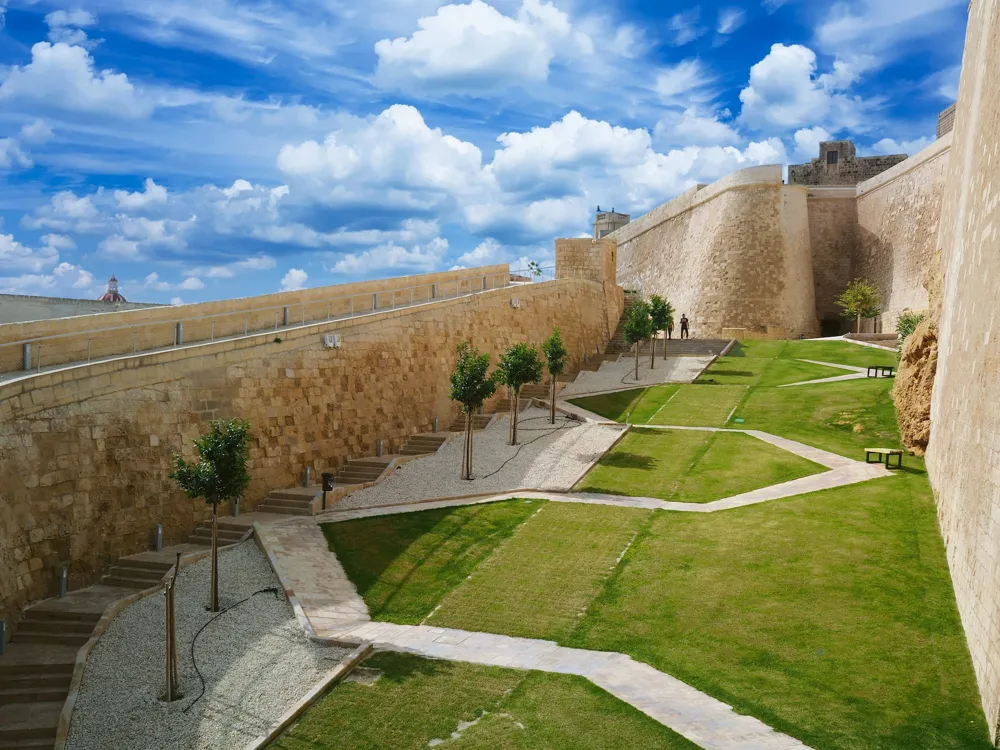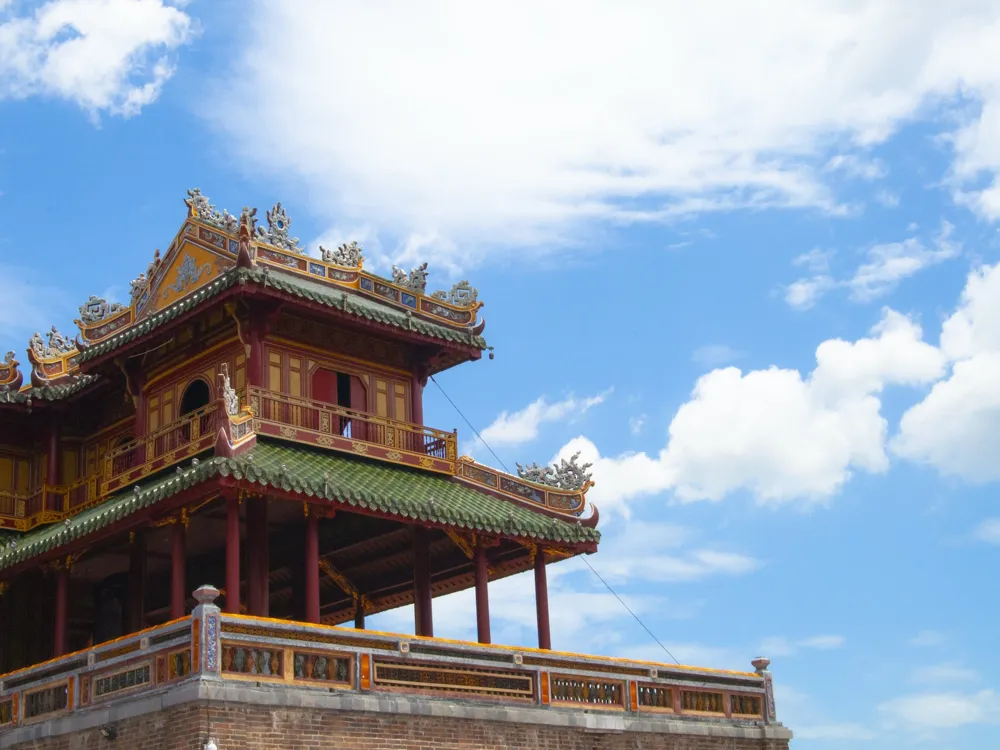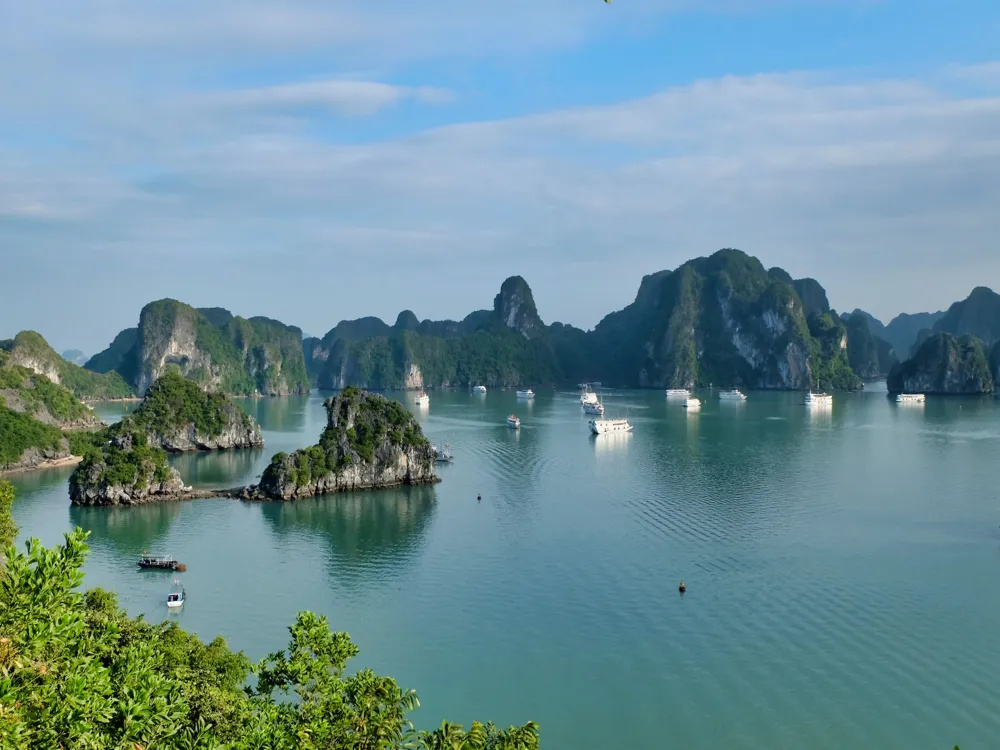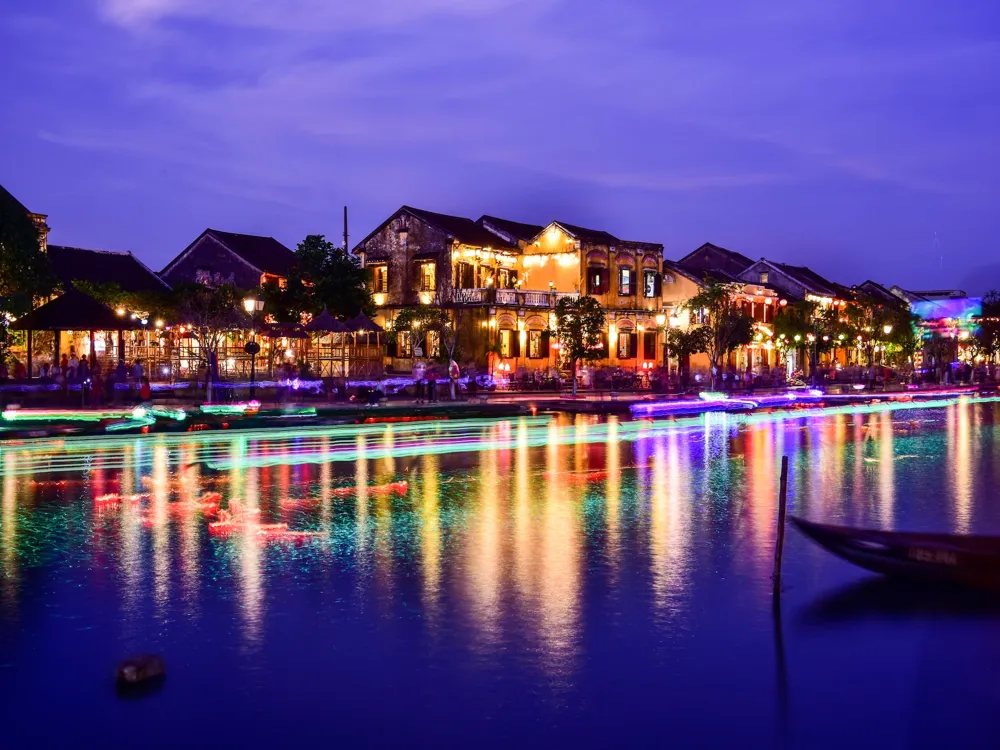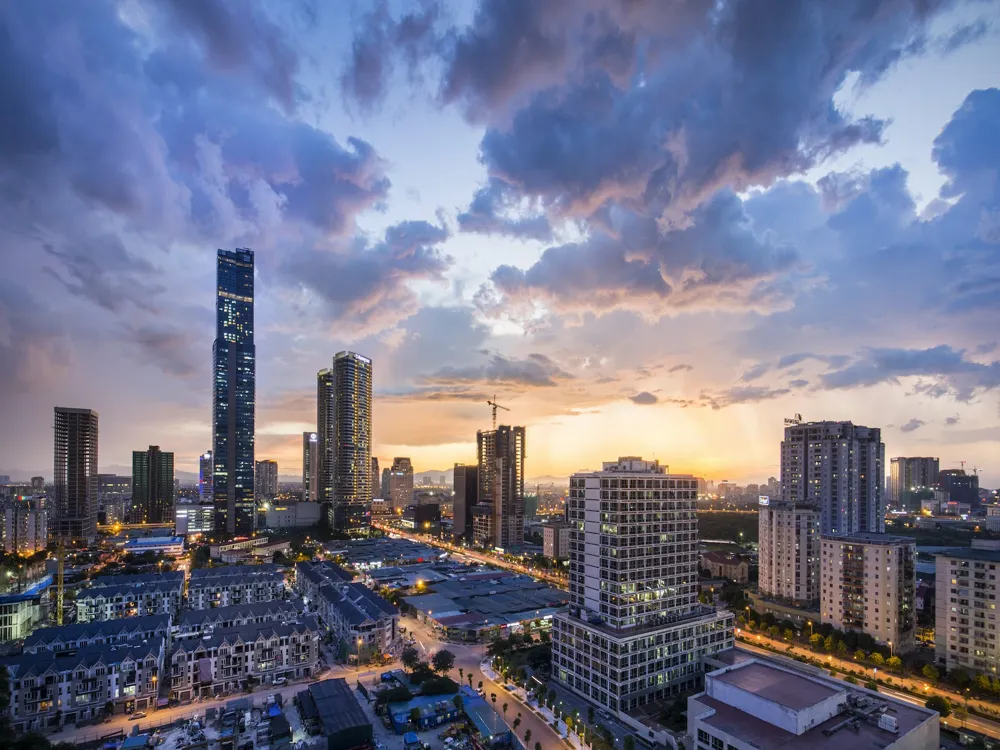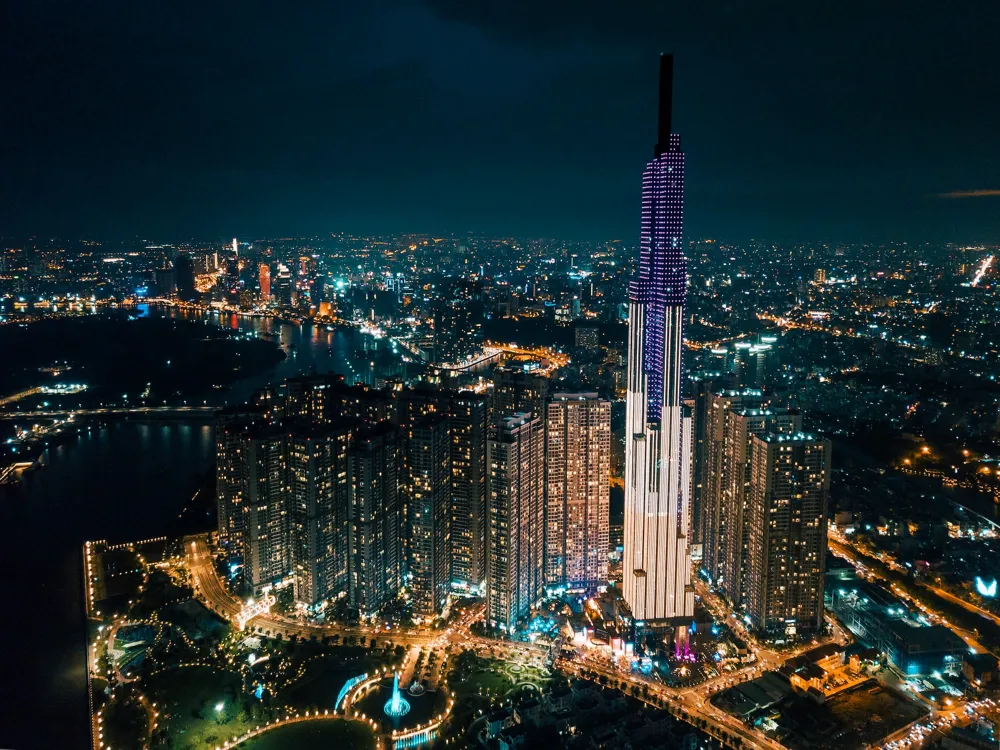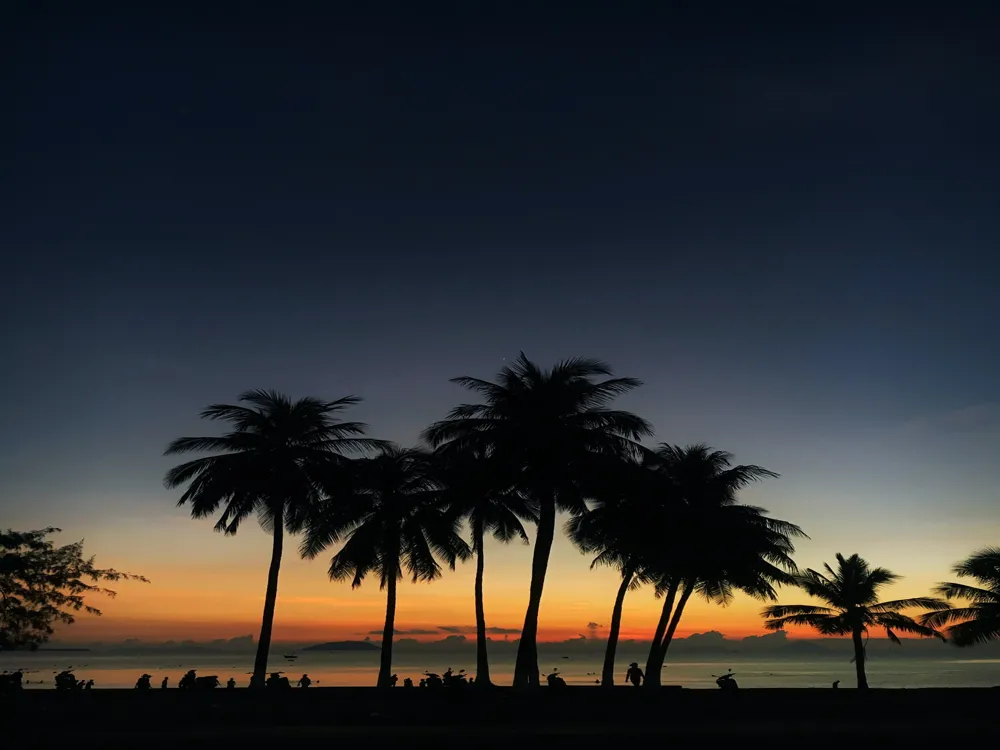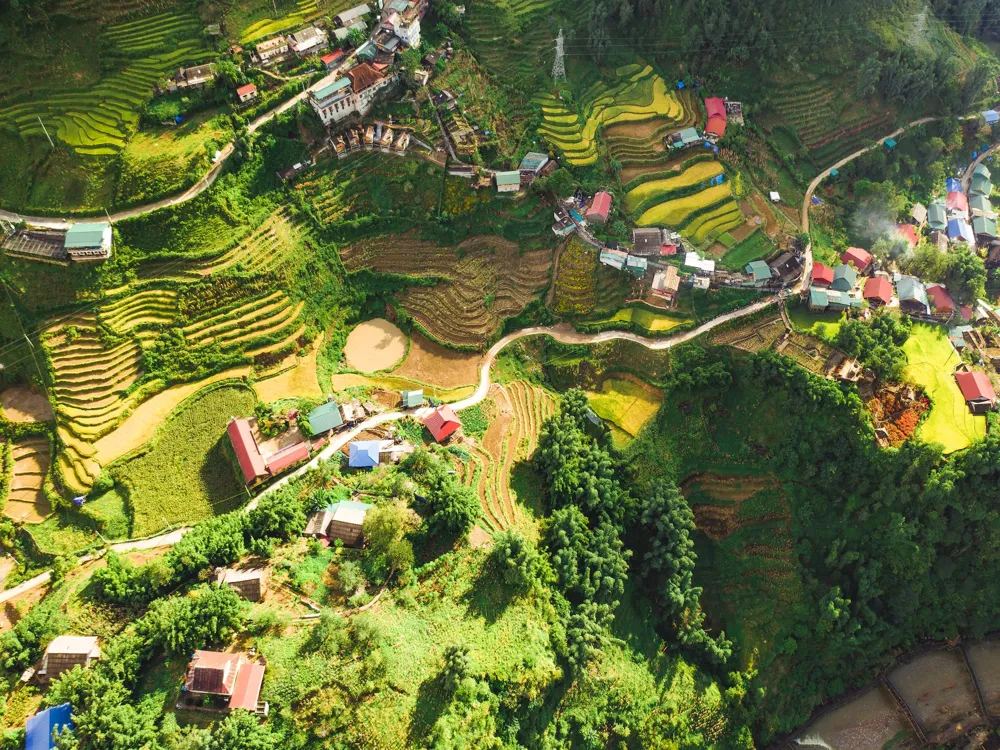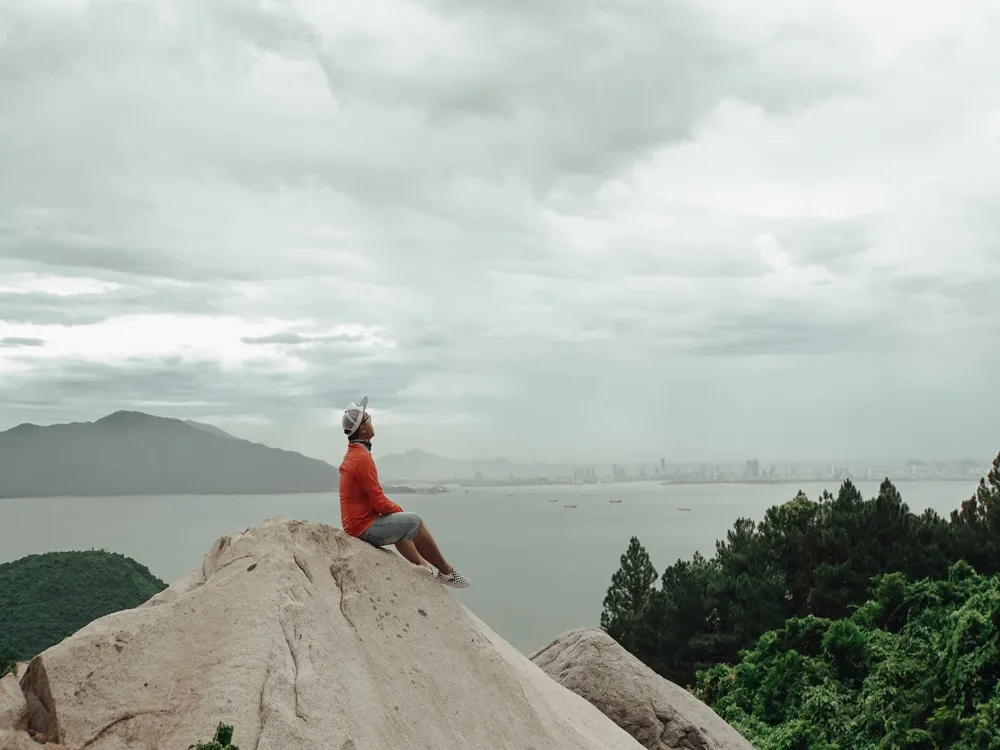Dong Hoi, the capital city of Quang Binh Province in Central Vietnam, is a harmonious blend of natural beauty and historical significance. This serene city, nestled along the picturesque Nhat Le River and adjacent to the South China Sea, boasts a charm that attracts tourists from around the world. Known for its pristine beaches, scenic rivers, and its proximity to the famous Phong Nha-Ke Bang National Park, Dong Hoi is a gateway to some of Vietnam's most spectacular natural wonders. The city's history is as rich as its landscapes. Surviving through the turmoil of the Vietnam War, Dong Hoi has risen like a phoenix from its ashes, embracing modern development while preserving its cultural heritage and historical sites. Visitors are often captivated by the city's resilience, evident in its well-preserved structures and the warm spirit of its people. As you explore Dong Hoi, you'll encounter a variety of experiences, from tranquil beachside relaxation to adventurous explorations in the nearby caves of Phong Nha-Ke Bang National Park. The city serves not only as a peaceful retreat but also as a reminder of the resilience and unyielding spirit of the Vietnamese people. Dong Hoi's architecture is a vivid tapestry that narrates the city's history and cultural evolution. The cityscape is dotted with structures that showcase a unique blend of traditional Vietnamese, French colonial, and modern architectural styles. This diverse architectural heritage is not just a feast for the eyes but also an embodiment of Dong Hoi's journey through different eras. Traditional Vietnamese architecture in Dong Hoi is exemplified by the communal houses and temples, featuring intricately carved wooden pillars, sweeping roofs, and ornate decorations, symbolizing the city's deep-rooted respect for its ancestral and spiritual traditions. These structures are often nestled in serene settings, offering a glimpse into the Vietnam of yesteryears. The French colonial influence is evident in several buildings that line the city's streets. These structures, characterized by their distinct yellow façades, large windows, and tiled roofs, reflect a period of history when Vietnam was under French rule. Today, these buildings stand as a testament to the city's resilience, having withstood the tests of time and war. In contrast, modern architecture in Dong Hoi is characterized by its simplicity and functionality. The city's rapid development has given rise to contemporary structures, ranging from sleek government buildings to stylish hotels and resorts. These modern edifices not only cater to the growing needs of the city but also represent Dong Hoi's aspirations towards a prosperous future. Each architectural style in Dong Hoi tells a story, contributing to the city's unique aesthetic and cultural identity. A walk through its streets is like a journey through time, offering insights into the city's past, present, and future aspirations. The ideal time to visit Dong Hoi is from February to April when the weather is mild and pleasant, perfect for exploring the city and its surroundings. This period avoids the heavy rains and hot temperatures of other months, ensuring a comfortable travel experience. When packing for Dong Hoi, include light, breathable clothing suitable for tropical climates, comfortable footwear for walking, and swimwear for the beaches. Don't forget sunscreen, a hat, and insect repellent to protect against the sun and bugs. Dong Hoi's cuisine is a delightful experience, with an array of local dishes to try. Be sure to taste the fresh seafood, Pho (Vietnamese noodle soup), and Banh Mi (Vietnamese sandwich). Visiting local markets and street food stalls provides an authentic taste of the city's culinary offerings. Respecting local customs and traditions is important. Dress modestly when visiting temples and religious sites, and always ask for permission before taking photos of people. Learning a few basic Vietnamese phrases can also enhance your interaction with locals. Reaching Dong Hoi is convenient, with multiple options available. The city has its own airport, Dong Hoi Airport, which is well-connected with domestic flights from major cities like Hanoi and Ho Chi Minh City. For those preferring land travel, regular bus and train services link Dong Hoi to other parts of Vietnam. The city's train station is on the North-South Railway line, making it an accessible destination for train enthusiasts and travelers alike. Once in Dong Hoi, getting around is easy. The city's compact size makes it perfect for exploring on foot or by bicycle. For longer distances, taxis and motorbike rentals are readily available, offering a more personal way to explore the city and its surroundings at your own pace.Overview of Dong Hoi
Architecture of Dong Hoi
Tips When Visiting Dong Hoi
Best Time to Visit
Packing Essentials
Local Cuisine
Cultural Etiquette
How To Reach Dong Hoi
Dong Hoi Citadel Gates
Dong Hoi
₹ 66,500 onwards
View dong-hoi Packages
Weather :
Tags : Historical Site
Timings : 9:00 AM - 6:00 PM
Time Required : 2 - 3 Hours
Entry Fee : VND 120,000
Planning a Trip? Ask Your Question
Dong-hoi Travel Packages
View All Packages For Dong-hoi
Top Hotel Collections for Dong-hoi

Private Pool

Luxury Hotels

5-Star Hotels

Pet Friendly
Top Hotels Near Dong-hoi
Other Top Ranking Places In Dong-hoi
View All Places To Visit In dong-hoi
View dong-hoi Packages
Weather :
Tags : Historical Site
Timings : 9:00 AM - 6:00 PM
Time Required : 2 - 3 Hours
Entry Fee : VND 120,000
Planning a Trip? Ask Your Question
Dong-hoi Travel Packages
View All Packages For Dong-hoi
Top Hotel Collections for Dong-hoi

Private Pool

Luxury Hotels

5-Star Hotels

Pet Friendly







